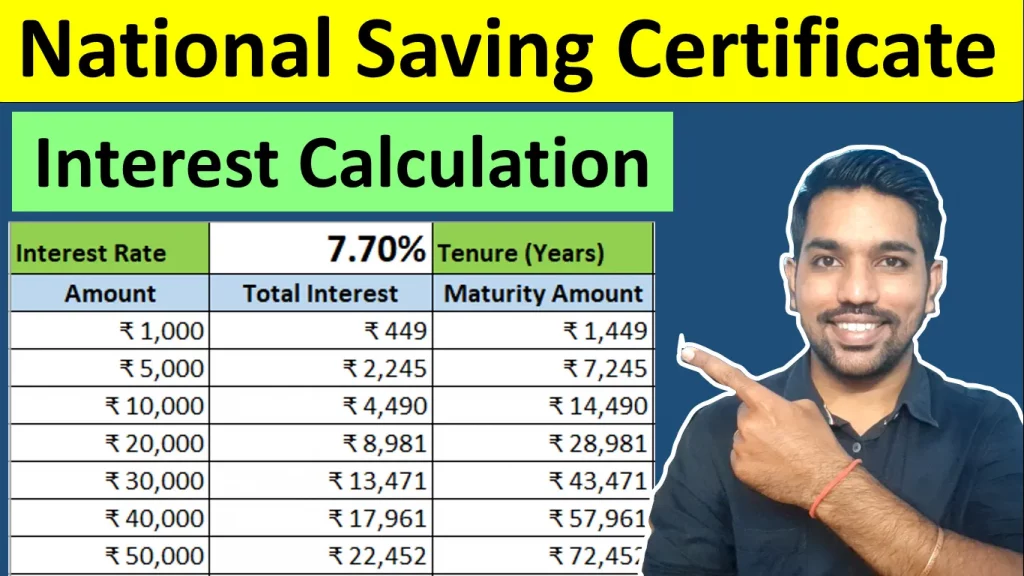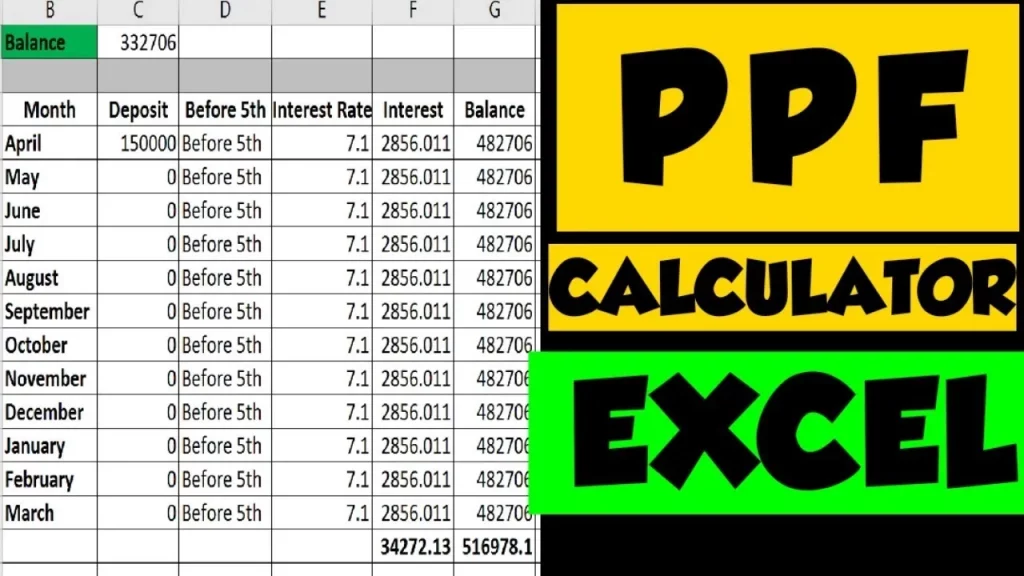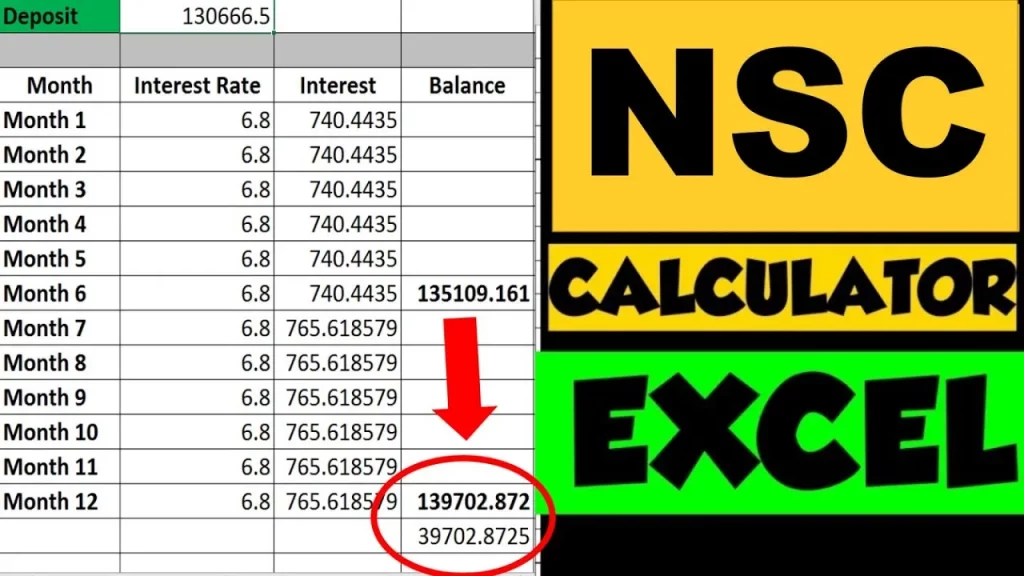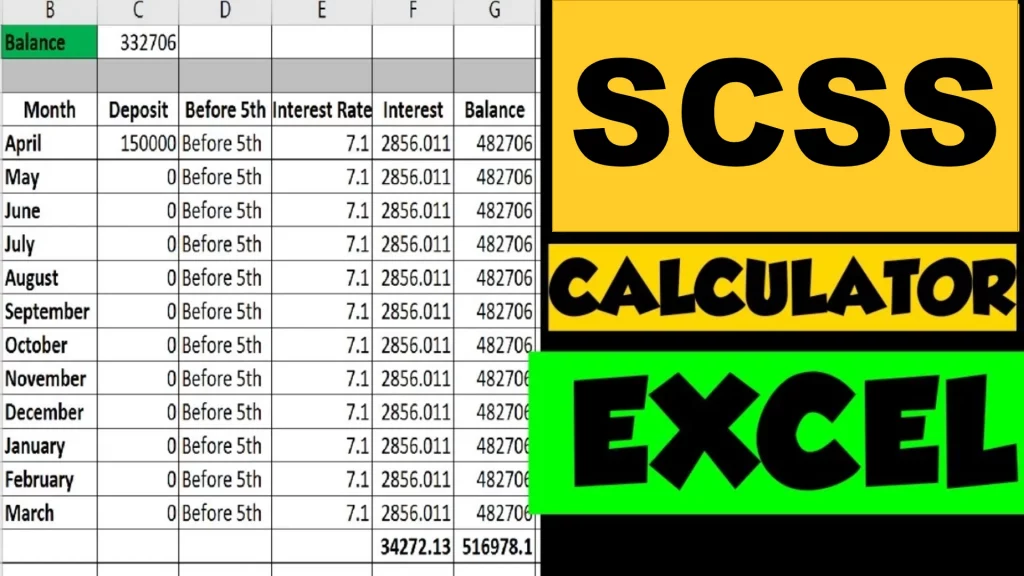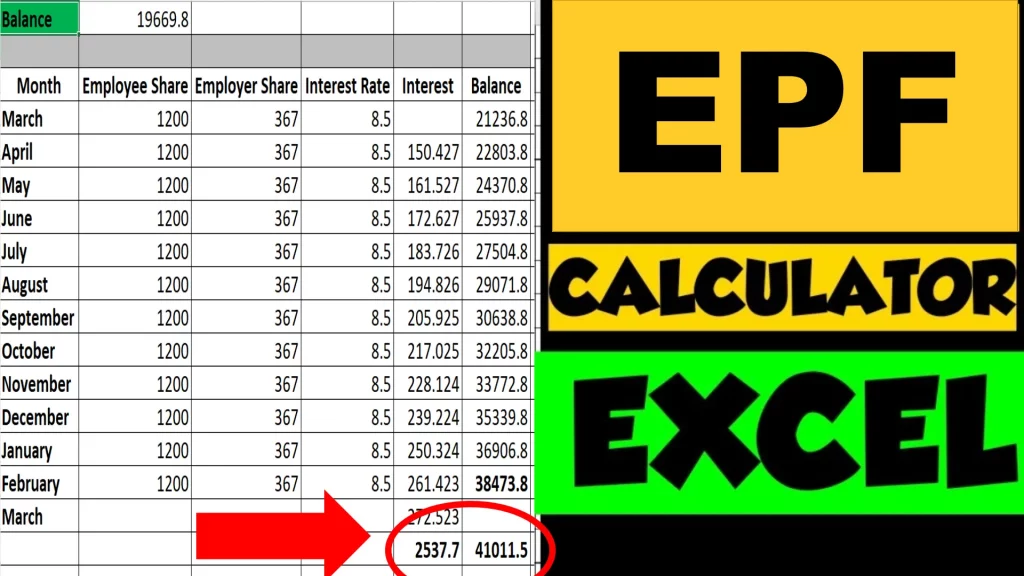Post Office National Saving Certificate or NSC Interest rate is 7.7% for current quarter of April to June 2025. This interest rate is reviewed by Government of India every quarter and can be updated in upcoming quarters. Remember that interest in National Saving Certificate is calculated based on fixed interest rate, which means, even though the interest rate changes in future, but you will get same interest rate throughout the tenure of 5 years when you have issued the National Saving Certificate or NSC.
- National Saving Certificate Calculator Video
- What is National Saving Certificate
- National Saving Certificate (NSC) Benefits
- Income Tax Benefits in National Saving Certificate
- What is the tenure of NSC (National Saving Certificate)?
- Is NSC better than FD?
- Is NSC Interest rate fixed for 5 years?
- What is compounding in NSC?
- Conclusion
Let us understand the benefits and Interest calculation in National Saving Certificate.
National Saving Certificate Calculator Video

Watch more Videos on YouTube Channel
As seen above, you can easily calculate interest in National Savings Certificate using the NSC Calculator. Based on the deposit amount and interest rate, the NSC interest will be calculated every month and compounded on annual basis.
What is National Saving Certificate
- National Saving Certificate or NSC are the certificates issued by Post Office to save for your financial goals
- These are low risk investment scheme to get fixed interest amount
- NSC scheme is for the tenure of 5 years. This means the deposit amount will be locked for 5 years from the issue of this certificate
- Minimum amount you can invest is Rs. 1000 and there is no maximum limit to issue NSC certificate
- You can have multiple NSC certificates issued against your name
- It helps you to save income tax under Section 80C that has a maximum limit of Rs. 1.5 lakh with old tax regime
- Remember that new tax regime does not allow deduction with NSC certificates
- NSC certificates are physical certificates having the details amount investment amount, interest rate, tenure and maturity amount
- You can get the maturity amount encashed or transferred in bank account after maturity. Failing to do so will help you earn interest for next 2 years at post office savings account interest rate, post which you will not earn any interest
- The interest portion of maturity amount in NSC is taxable as per your tax slab rates
Let us now understand the benefits of NSC.
National Saving Certificate (NSC) Benefits
Below are some of the benefits of National Saving Certificate:
- Income Tax Saving: NSC or National Saving Certificate helps you to save income tax with old tax regime under Section 80C. This means you can claim maximum of Rs. 1.5 lakh in the financial year by investing in NSC
- High Interest Rate: The current interest rate in NSC is 7.7% for April to June 2025 quarter, which is high compared to other saving schemes such as Fixed Deposits and Recurring Deposits
- Achieve Financial Goals: NSC helps you to achieve your financial goal of 5 years. Since NSC accepts one time investments, you can deposit the amount and get interest amount after 5 years along with your principal amount.
Income Tax Benefits in National Saving Certificate
National Saving Certificate provides you the income tax benefits under Section 80C with old tax regime.
This means you can deposit Rs. 1.5 lakh in a financial year, to issue this certificate and claim deduction with Section 80C. Note that this deduction is not available with new tax regime.
Apart from this, the interest amount you’ll receive after 5 years of NSC tenure will be taxable. So you can reinvest this interest amount again to claim deduction with Section 80C in upcoming financial years.
Watch below video to understand the difference between PPF and NSC and which sis a better investment scheme for you.
PPF vs NSC Interest Calculation – Which is Better? – Video

What is the tenure of NSC (National Saving Certificate)?
The tenure of NSC is 5 years. So the deposit you make in this certificate will be locked in for 5 years.
After 5 years, you can get the principal and interest amount from NSC certificates in your savings account.
Is NSC better than FD?
It depends on various factors to compare NSC with FD and let us try to do so with below points:
| Items | National Saving Certificate (NSC) | Fixed Deposits (FD) |
|---|---|---|
| Income Tax | Helps in Saving Income Tax under Section 80C | 5 year tax saver Fixed Deposit also helps in saving income tax with Section 80C |
| Liquidity | Difficult to break NSC certificates before 5 years but can be done based on some conditions | You can easily break or liquidate FD before 5 years |
| Account opening online | Currently it involves offline process of buying certificate via Post Office | You can easily open FD via net banking of your Savings account Bank |
| Compounding | Yearly compounding is done based on deposit | Quarterly compounding which gives you more interest amount |
| Interest rate | Current interest rate is 7.7% | Interest rate varies between 6.5% to7.5% based on the bank |
| Maturity amount (@7.7% interest rate) | You’ll get Rs. 72,452 on Rs. 50,000 deposit in NSC after 5 years | You’ll get Rs. 73,212 on Rs. 50,000 deposit in Fixed Deposit after 5 years |
As seen in above table, Fixed deposits are better compared to NSC if we see the liquidity, account opening steps and compounding factors. FD gives you more interest amount due to quarterly compounding, provided you get FD interest rate higher than NSC.
NSC is better in terms of interest rate, and can help you get yearly compounding
ALSO READ: FD Interest Calculation for 10 Years
Is NSC Interest rate fixed for 5 years?
Yes NSC interest rate is fixed for the certificate you issue for the next 5 years. So, the interest rates of post office schemes are updated every quarter, but this does not impact the interest rate on existing NSC certificates that are issued already to you.
You’ll get the same interest rate in NSC throughout the tenure of 5 years.
What is compounding in NSC?
Compounding means you get interest amount on already earned interest. Based on the interest calculation every month for first financial year, the interest is summed up for all months in FY and added to your principal amount. This means in upcoming financial years, you’ll earn more interest amount on this already earned interest.
Conclusion
So to summarize, National Saving certificate current interest rate is 7.7%, which will be reviewed by government of India every quarter. Your deposit amount will be locked in for 5 years and you’ll earn monthly interest in NSC where as compounding will be done on yearly basis.
NSC provides you income tax benefits under Section 80C and maximum of Rs. 1.5 lakh can be claimed under old tax regime.
Some more Reading:
- Post Office Monthly Income Scheme Interest Rate and Calculation
- PPF Interest rate History
- Sukanya Samriddhi Yojana Scheme
Save Home Loan Interest Amount!
Use Home Loan Excel Calculator that will help you to Save Interest Amount on Home Loan EMI.
Click below button to download Home Loan EMI and Prepayment Calculator in Excel:
Watch how Home Loan Calculator in Excel Works
Income Tax Calculator App – FinCalC
For Income Tax Calculation on your mobile device, you can Download my Android App “FinCalC” which I have developed for you to make your income tax calculation easy.
What you can do with this mobile App?
- Calculate Income Tax for FY 2025-26 and previous FY 2024-25
- Enter estimated Investments to check income tax with Old and New Tax Regime
- Save income tax details and track regularly
- Know how much to invest more to save income tax
- More calculators including PPF, SIP returns, Savings account interest and lot more

Use Popular Calculators:
- Income Tax Calculator
- Home Loan EMI Calculator
- SIP Calculator
- PPF Calculator
- HRA Calculator
- Step up SIP Calculator
- Savings Account Interest Calculator
- Lump sum Calculator
- FD Calculator
- RD Calculator
- Car Loan EMI Calculator
- Bike Loan EMI Calculator
- Sukanya Samriddhi Calculator
- Provident Fund Calculator
- Senior Citizen Savings Calculator
- NSC Calculator
- Monthly Income Scheme Calculator
- Mahila Samman Savings Calculator
- Systematic Withdrawal Calculator
- CAGR Calculator
I’d love to hear from you if you have any queries about Personal Finance and Money Management.
JOIN Telegram Group and stay updated with latest Personal Finance News and Topics.
Download our Free Android App – FinCalC to Calculate Income Tax and Interest on various small Saving Schemes in India including PPF, NSC, SIP and lot more.
Follow the Blog and Subscribe to YouTube Channel to stay updated about Personal Finance and Money Management topics.

